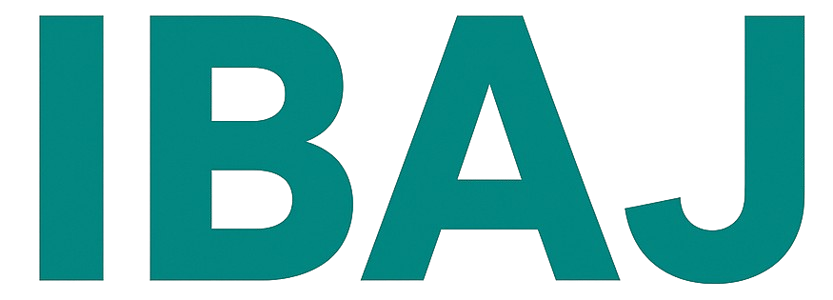Ethics and Malpractice
The International Business Administration Journal (IBAJ) is committed to maintaining the highest standards of publication ethics. The journal follows the principles and guidelines established by the Committee on Publication Ethics (COPE), ICMJE recommendations, and international ISSN best practices for scholarly publishing. The following statement outlines the ethical expectations and malpractice prevention policies for all stakeholders involved in the publication process.
Ethics & Malpractice Statement
International Business Administration Journal
-
Responsibilities of the Editorial Board
-
Fair and Transparent Review
Editors evaluate manuscripts solely based on academic merit, originality, clarity, relevance to the journal scope, and contribution to the field of international business administration.
Editorial decisions are not influenced by authors’ nationality, gender, institutional affiliation, or political views.
-
Confidentiality
Editors and editorial staff must not disclose any information about submitted manuscripts to anyone other than the corresponding author, reviewers, or publishing staff.
-
Conflicts of Interest
Editors must refrain from handling manuscripts in which they have conflicts of interest (professional, personal, or financial).
Such manuscripts are reassigned to another qualified editor.
-
Suspected Misconduct Handling
Editors follow COPE flowcharts to address allegations of plagiarism, data falsification, duplicate publication, unethical research, or authorship disputes.
-
Fair and Transparent Review
-
Responsibilities of Reviewers
-
Contribution to Editorial Decision
Reviewers support editors in making informed decisions and may assist authors in improving their manuscripts.
-
Objectivity and Professionalism
Reviews must be objective, constructive, and free from personal criticism.
-
Confidentiality
Manuscripts received for review must be treated as confidential documents.
-
Conflict of Interest
Reviewers must decline to review manuscripts where a conflict of interest exists or if they feel unqualified.
-
Timeliness
Reviewers should complete evaluations within the stipulated timeframe. Delays must be communicated promptly to the editor.
-
Contribution to Editorial Decision
-
Responsibilities of Authors
-
Originality and Plagiarism
Authors must ensure that their work is original and properly cited.
Plagiarism (including self-plagiarism), fabricated data, or manipulated results are strictly prohibited.
All submissions undergo similarity checks.
-
Accurate and Honest Reporting
Research methods and findings should be presented clearly and accurately.
Fraudulent or knowingly inaccurate statements constitute unethical behavior.
-
Data Accessibility
Authors should retain raw data and provide access upon reasonable request for verification.
-
Authorship
Only those who made a significant contribution to the research should be listed as authors.
All co-authors must approve the final manuscript and consent to its submission.
-
Conflicts of Interest
Authors must disclose any financial or personal relationships that may influence the research.
-
Multiple or Redundant Publication
Submitting the same manuscript to more than one journal concurrently is unethical.
Prior publication must be disclosed.
-
Ethical Research Compliance
Studies involving humans or animals must include ethics committee approval and informed consent where applicable.
-
Originality and Plagiarism
-
Publisher Responsibilities
-
Integrity of the Scholarly Record
The journal ensures rigorous peer review and maintains transparency in all publishing practices.
-
Handling Retractions and Corrections
The journal follows standardized procedures for issuing corrections, retractions, expressions of concern, or editorial notices.
-
Archiving
The journal ensures long-term archiving and digital preservation of published content (LOCKSS, CLOCKSS, institutional repository, or similar system).
-
Integrity of the Scholarly Record
-
Malpractice Prevention and Action
-
Plagiarism and Similarity Checks
All manuscripts undergo plagiarism detection using recognized software.
Submissions with unacceptable similarity levels are rejected.
-
Research Misconduct
If misconduct is confirmed (data fabrication, plagiarism, falsification, duplicate submission, unethical research), the journal may:
- Reject the manuscript
- Retract published articles
- Notify the authors’ institutions or funding agencies
- Ban authors from future submissions (temporary or permanent)
-
Appeals and Complaints
Authors may appeal editorial decisions by submitting a reasoned written request.
Complaints about malpractice or ethical concerns are investigated independently.
-
Plagiarism and Similarity Checks
-
Copyright and Licensing
Authors retain copyright unless stated otherwise.
Journal articles may be published under a Creative Commons license (e.g., CC BY) if applicable.
Authors must guarantee they have rights for any material reproduced.
-
Compliance with ISSN Standards
The policies above ensure:
- Transparency in editorial management
- Accountability in scholarly record keeping
- Ethical research and publication processes
- Alignment with global ISSN requirements for journal legitimacy and quality
